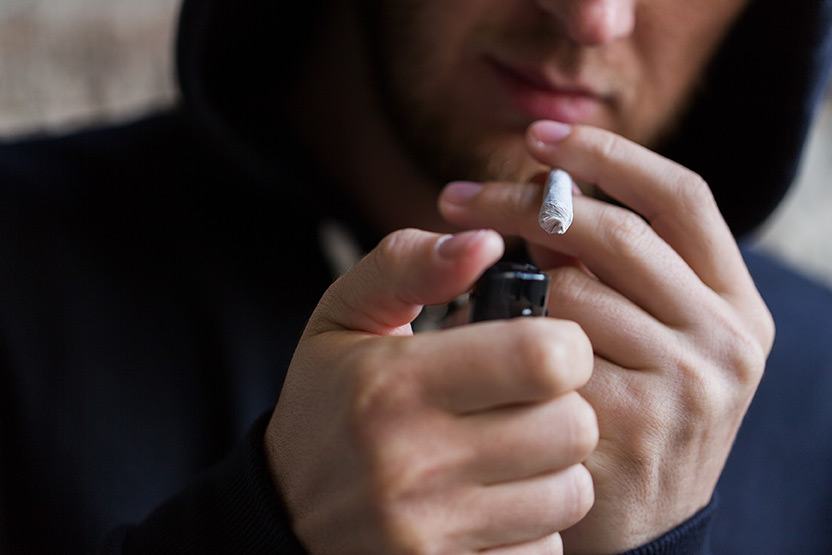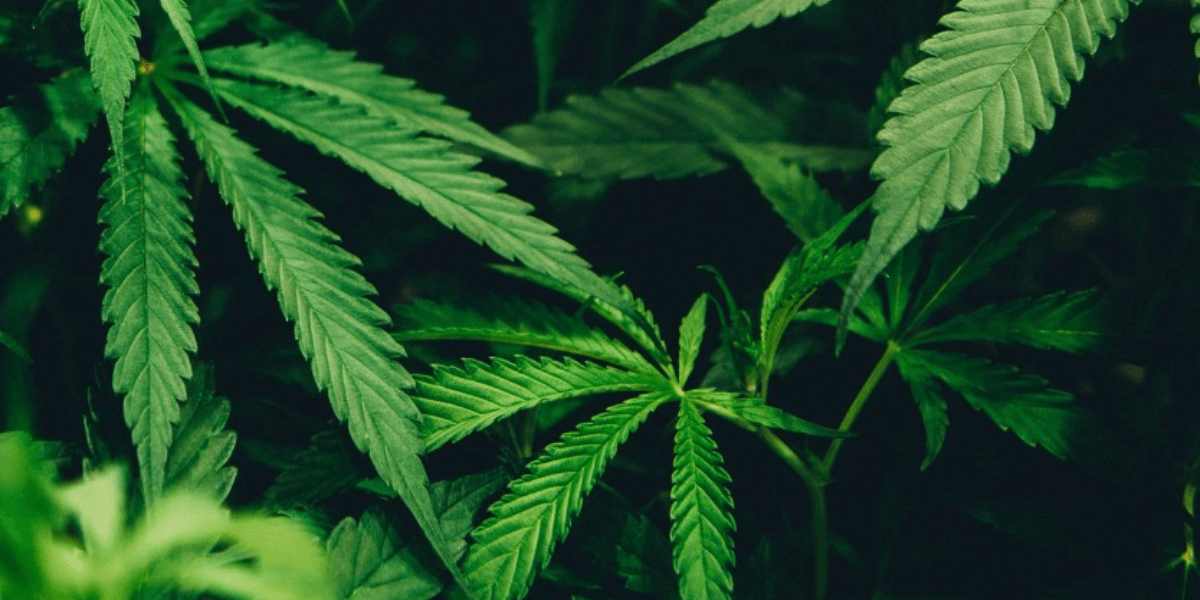How Do You Know if You’re Addicted to THC?
How Do You Know if You’re Addicted to THC?
How Do You Know if You’re Addicted to THC? Smoking or consuming THC has evolved into a socially accepted activity across the US despite it still being Federally Illegal. THC itself has proven medical benefits in particular formulations however it is becoming more commonly abused and people are seeking for medicinal purposes. It was reported in a study performed by Addiction Medicine at Massachusetts General Hospital in Boston that 17.1% of people who received medical marijuana developed Cannabis use disorders.
Like other addictions There are different types of addiction. Unfortunately, many people do believe that because a substance does not have physical addictive properties that with increased usage can lead to painful or life threating withdrawals that a substance is not addictive.
Addiction can be either physical or behavioral, and often they go hand in hand. Though alcohol and tobacco are commonly recognized types of addiction, there are actually hundreds of types of medically and scientifically recognized addictions.
Cravings, compulsions, inability to stop, and lifestyle dysfunction all point to the existence of some type of addiction. A person can be addicted to behaviors just as seriously as one can be addicted to substances such as THC.
The addictive behaviors that result from both types of addiction can have serious negative consequences though, from all that comes with a substance use disorder. Addiction is a complex disease. Some people try to justify their THC use comparing it to drugs that are more addictive. At the end of the day in most cases there are underlying issues that cause the individual to chase that feeling which can lead to long term issues and psychological dependence.
These adverse effects with the development of addiction can include financial issues, destructive behavior, relationship issues, family conflict, and the negative feelings that come up as a result of these things.
Behavioral Addictions
Behavioral addiction is classified as any time that one loses control of their actions in order to engage in behaviors that result in brief feelings of happiness. That person becomes dependent on the pleasurable feelings that come as a result of certain behaviors and begins to compulsively act on that behavior.
Physical Addictions
Physical addictions are the ones that are generally better known. These are addictions to substances that are ingested or otherwise put into a person’s body.
Is THC Addictive?
Despite the common misconception, people can become addicted to THC. How Do You Know if You’re Addicted to THC? As more states either decriminalize or legalize cannabis, more people are using it than ever before. Like other addictions There are different types of addiction. Unfortunately, many people to believe that because a substance does not have physical addictive properties that with increased usage can lead to painful or life threating withdrawals that a substance is not addictive. According to the National Survey on Drug Use and Health, in 2021, approximately 19 percent of Americans 12 and older used cannabis, and nearly 6 percent of teens and adults qualified as having cannabis use disorder — the clinical name for addiction. (For comparison, close to 11 percent of Americans over the age of 11 have alcohol use disorder.)
A more recent study conducted in Washington State, where recreational cannabis use is legal, found that 21 percent of people who had used cannabis in the past 30 days qualified as having the disorder.
“Most people who use cannabis do not have problems related to their use and are not going to develop a cannabis use disorder,” said Dr. Ayana Jordan, an associate professor of psychiatry at N.Y.U. Langone Health. But, she added, “just because cannabis is being legalized — and I actually think it should be legalized — it doesn’t mean that there is not any harm associated.”
The potential consequences of cannabis use disorder are not as severe as with other drugs like opiates, where overdose deaths are a dire concern. But cannabis addiction can cause “a dramatic decrease in quality of life,” said Dr. Christina Brezing, an assistant professor of psychiatry at Columbia University. Here’s what to know.
Signs of addiction
The American Psychiatric Association’s Diagnostic and Statistical Manual of Mental Disorders, Fifth Edition, defines cannabis use disorder using 11 criteria that loosely fall into four symptom buckets (the same diagnostic criteria apply for all substance use disorders). If you meet at least two of the below criteria, you qualify as having a use disorder:
Loss of control
-
Taking more of the drug or using it more frequently than you intend to
-
Spending a great deal of time obtaining or using cannabis
-
Having an uncontrollable urge, or craving, to use it
-
Trying to stop or cut back and not being able to
Interpersonal consequences
-
Foregoing other social or recreational activities in order to use cannabis.
-
Experiencing interpersonal conflicts as a result of your cannabis use
-
Failing to fulfill obligations at work or at home as a result of use.
Risky use
-
Putting yourself in potentially dangerous situations as a result of obtaining or using cannabis
-
Continued use despite negative physical and psychological effects.
Physical dependence
-
Developing tolerance — having to use more of the drug to achieve the same effect.
-
Experiencing withdrawal symptoms when you stop using cannabis, such as insomnia, irritability, anxiety, depressed mood and decreased appetite.
Is it time to seek treatment? Would you like to know more about our Marijuana Addiction Treatment Program?
Marijuana Addiction Treatment Program
If you or someone you know would like to know more about Transformations by the Gulf Substance Abuse Treatment Center Give us a Call 24/7 (727)498-6498
The success of a person’s recovery depends on the level of personalized treatment provided. It is important to find an addiction treatment program that works. When we say our treatment is individualized, we mean that we craft a program that is tailored to address the client’s unique physical, mental and emotional needs. If you are wondering, How Do You Know if You’re Addicted to THC?, you should consider reaching out.
In the client’s first 24 hours with us, we’ll evaluate their current state and work to understand what challenges they need to overcome. They’ll also have an initial session with our doctor and meet with one of our licensed mental health professionals.
After the initial evaluations, we’ll design a treatment plan with the sole mission of helping the client overcome and heal from addiction. Their program will focus on things such as:
- Addressing and Identifying root causes of addiction.
- Creating a support system.
- Developing healthy stress management techniques.
- Eliminating Substance use.
- Learning how to communicate emotions effectively.
- Maintaining a healthier lifestyle.
- Repairing damaged relationships.
Are you struggling with addiction and want to learn more? Visit Psychology Today or check out or page on addiction treatments.
Our Facility is near the beach and offers a comfortable setting for substance abuse treatment and recovery.
What a Day is Like in Our Treatment Facility.
Why Transformations by the Gulf?
Marijuana Addiction, Florida
How Marijuana Addiction Can Happen
Marijuana is the most popular drug used in society today, and 41.5% of the U.S. population over the age of 12 has used it at least once in their lifetime. Marijuana addiction knows no barriers in terms of age, race, sex or social status. Although some states have decriminalized the use of marijuana, from a federal standpoint, it remains a controlled substance.
Marijuana is composed of a mixture of the stems, seeds, and flowers of the Cannabis sativa hemp plant. The primary method of use is smoking it as a rolled cigarette or “joint,” in a pipe, or in a water pipe known as a bong. It can also be ingested orally as a concentrated liquid in tincture form, or by cooking it in food or tea. Typically, the effects of the drug last longer with oral ingestion. Marijuana is known by many names, such as weed, dope, grass, pot, ganja, and hash. There are also trademarked names for its many varieties, including Blue Dream, Northern Lights, etc. Hashish is a highly concentrated resin extracted from the bud of the female plant that is used either in clumps that are smoked alone or added to the pot or as a sticky, tar-like liquid ingested by itself or in beverages.
Although there are over 400 chemicals in a marijuana plant, the one responsible for altering brain function is THC or delta-9-tetrahydrocannabinol. Marijuana growers genetically enhance their plants to increase its levels of TCH, making it even more powerful and addictive.
When marijuana is smoked, THC travels from the lungs into the bloodstream, carrying the chemical throughout the body to the brain. When it reaches the brain, THC binds to specific cannabinoid receptors on the nerve cells that influence pleasure, memory, concentration, coordination, and perception of time. This cellular reaction in the brain’s pleasure centers is what causes the high. THC also binds to the fatty tissues in the body and therefore can be detected in users for weeks after it has been used.
How is Marijuana Addictive?
Part of marijuana’s widespread appeal is based on the misconception that it’s a “safe” drug. Although most people don’t think it’s addictive, nearly 4.3 million Americans are using it at abusive or dependency levels.
Marijuana is a psychotropic drug, the effects of which can be mildly psychedelic. Although the high usually brings feelings of relaxation and sensuous pleasure, users may also experience extreme paranoia and anxiety. It’s also considered a “gateway” drug, which means it often leads to the use of other more dangerous drugs, such as heroin or cocaine.
How Marijuana Influence Addiction Within The Body
In the short-term, marijuana causes reddening of the eyes, burning or irritation of the mouth and throat, suppression of motor control and loss of coordination, distorted perception, and increased heart rate.
Since marijuana contains 3-5 times the level of carbon monoxide than tobacco, it damages the lungs and respiratory tissues, which can lead to chronic bronchitis and even cancer. It also causes an increased risk for heart attack due to its effect on blood pressure and heart rate. Repeated use of marijuana can lead to infertility in females and a drastic decrease in sperm count in males.
Long-term marijuana use causes changes in brain pathways that are consistent with the use of other major drugs. The cumulative effect can impair one’s cognitive abilities, causing memory loss, difficulty concentrating or processing information, and lack of judgment. However, studies have proven that some cognitive abilities may be restored after discontinuing marijuana use.
At Transformations By The Gulf, we understand how marijuana addiction can affect your life. We tailor individual, an innovative treatment that will address your needs – body, mind, and spirit – so you can get your life back on track. Your individualized drug treatment program might include outpatient detox, individual therapy, group therapy, family therapy and a wide array of adjunct treatment services designed to ensure you receive world-class addiction treatment and achieve sustained recovery.
Seeking Treatment with Transformations by the Gulf?
If you or a loved one needs treatment and rehabilitation for substance use, Transformations by the Gulf can help.
Transformations by the Gulf offers individualistic and holistic recovery services. We designed our inpatient and outpatient programs to treat individuals based on biological, psychological, familial and social needs.
Our residential homes and treatment facilities are near the beach and offer a comfortable setting for rehabilitation. If you or a loved one needs help, contact Transformations By The Gulf to learn more about our recovery services.
If you are ready to start planning your treatment process, give us a call. (727)498-6498
You can also find out more information about Transformations by the Gulf by visiting Tampa Bay Beaches Chamber of Commerce.
What a Day is Like in Our Treatment Facility.
Why Transformations by the Gulf?

